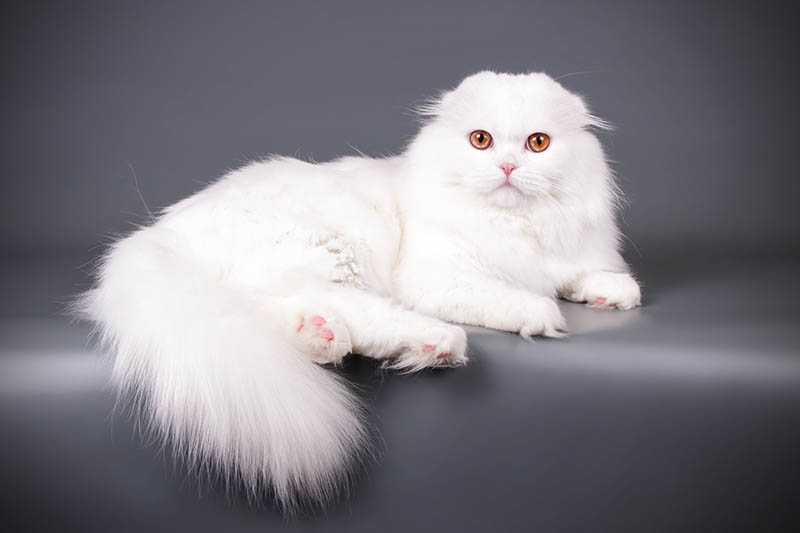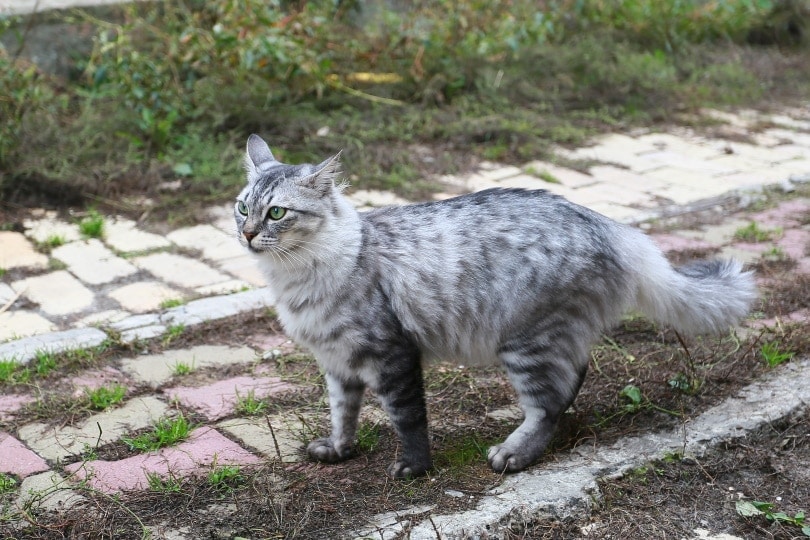Can Cats Eat Vanilla? Vet-Reviewed Nutrition Facts & Safety Guide
By Ashley Bates
Updated on
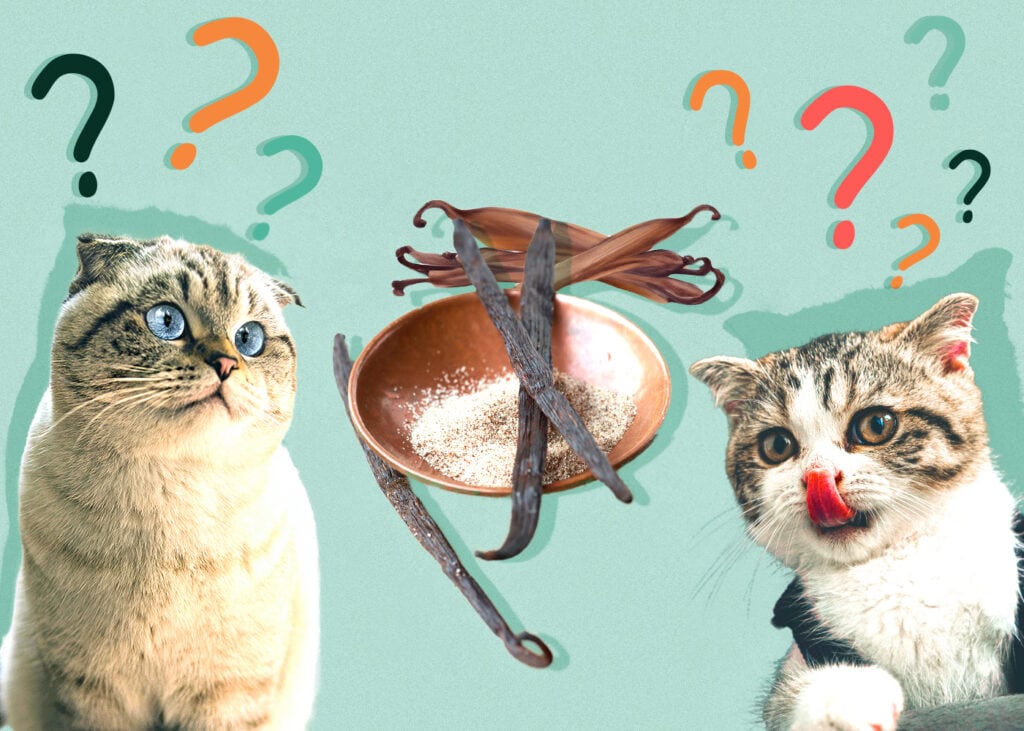
Vanilla is one of the most popular flavorings you might find in a spice cabinet. A go-to favorite for desserts, perfumes, and dishes, vanilla has undoubtedly made its mark on the culinary world. Even though it is a safe, tasty additive for humans, you might wonder if cats are safe, too.
While vanilla itself, scientific name Vanilla planifolia, is non-toxic to cats, the ethyl alcohol in concentrated vanilla oil and extracts is toxic to cats. Even vanilla in its natural form, despite being considered safe for cats, is not something they should be eating in the first place.
Let’s look deeper at just how carefully we need to keep an eye on our felines around vanilla. If you have any questions about your cat’s nutrition or they have consumed something they shouldn’t have, consult with your vet promptly.
Keep Your Vanilla Out of Your Cat’s Reach
When the holiday season hits, it’s pretty common to see baking ingredients scattered across countertops. But our cats are some curious creatures—and not all things are safe for them.
Vanilla extract that you have in your cupboard contains a large amount of ethyl alcohol—35% and more. Alcohol content this high can be dangerous for your feline. Vanilla fragrance, scents, and essential oils are trouble, too.
However, vanilla baked goods and snacks will probably not harm or kill your cat—as long as no other potentially toxic ingredients exist. To be on the safe side, it’s best to keep your kitties from vanilla in general. They don’t benefit from having vanilla in any way.
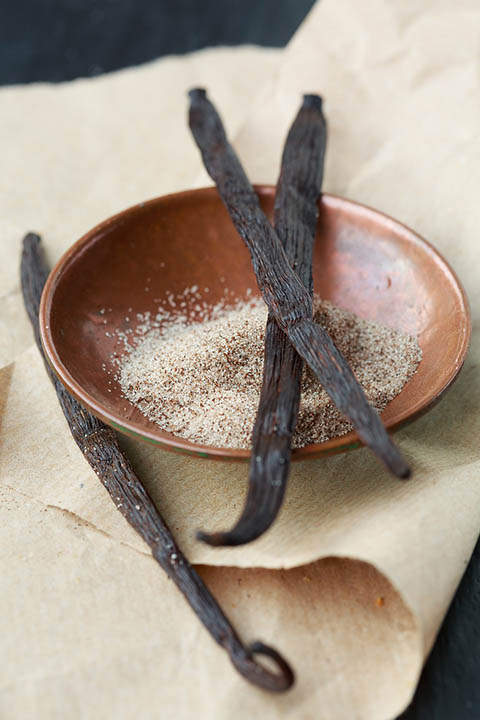
Vanilla Extract Nutrition Facts
Amount Per 1 Tablespoon
| Calories: | 38 |
| Potassium: | 19 milligrams |
| Total Carbohydrates: | 1.6 grams |
As you can see, there are no nutritional benefits in vanilla extract alone. It is an addition to recipes, not a standalone snack, and it is also purely empty calories.
Vanilla Oils
Vanilla, like many essential oils, is highly concentrated. This means the potency of the plant is reduced to a pure form and condensed into premade bottles. This is particularly dangerous—so make sure to always keep any pure oil away from your cats.
Vanilla Sprays & Perfumes
Vanilla sprays and perfumes might be worse than straight vanilla. They contain various irritants and chemicals that can wreak havoc on your cat’s digestive, respiratory, and nervous system. However, most of these scents will be unsatisfactory for your cat, warding them away naturally.
Vanilla Extract
Vanilla extract has high alcohol content, topping out around 34%. If your cat drinks enough of it, it can cause extremely harmful effects on their health. If you suspect they may have ingested some or have definitely seen them do it, we cannot stress how important it is for you to contact your vet urgently so that your cat can receive the treatment they require.
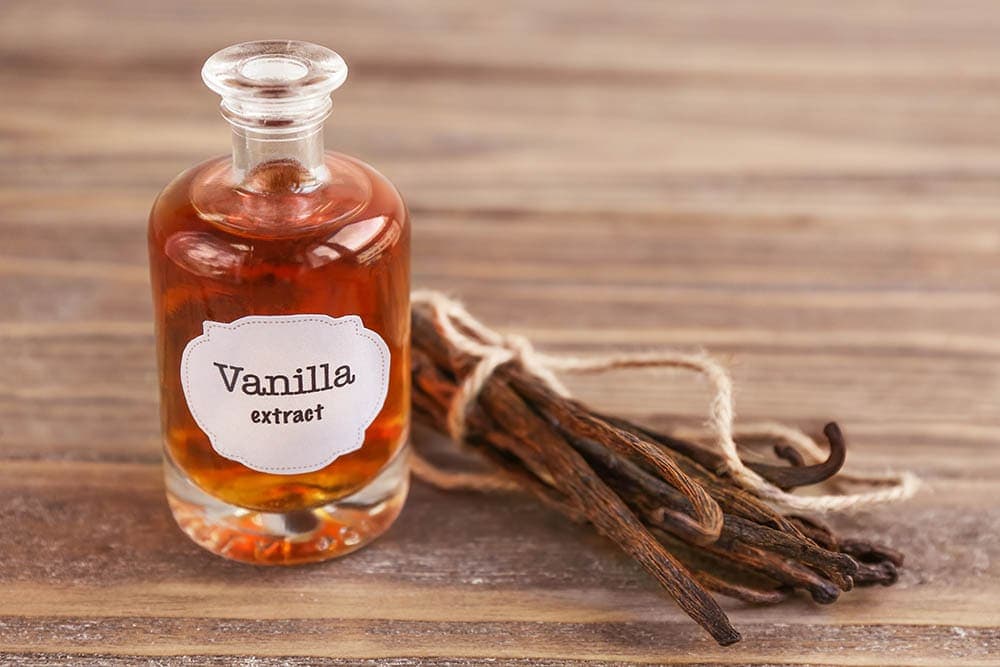
Signs of Alcohol Toxicity in Cats
If your cat had vanilla extract, here are possible signs of alcohol toxicity to be aware of:
- Ataxia
- Lethargy
- Vomiting
- Recumbency
- Tremors
- Hypothermia
- Disorientation
- Crying
- Hypotension
- Respiratory depression
- Coma
- Seizures
- Death
If your cat exhibits any of these signs, rush them to the vet right away. The outcome depends on what they consumed, the amount ingested, when they ingested it, the age of your cat, and their overall health.
Importance of Keeping Vanilla Away from Cats
The likelihood of your cat drinking enough vanilla extract to cause severe damage is low but still possible. The more likely scenario is that your cat smells it, shows interest in it, possibly tastes it, and then walks away.
In rarer cases, your cat might indulge. To reduce the risk of exposure entirely, make sure all spices, seasonings, and cooking ingredients are out of reach.
If your cat gets into goodies, it can cause costly vet visits, which can be troublesome if you aren’t anticipating the cost, not to mention the detrimental effects on your cat’s health.

What to Do if Your Cat Eats Vanilla
If your cat eats or drinks vanilla, it greatly depends on the form of vanilla they consumed. Some types of vanilla are more dangerous than others—especially depending on the purity and dilution of the vanilla.
Baked Treats & Desserts
Many other additives and artificial flavorings, such as xylitol, can be harmful to cats. So, vanilla might not be your biggest concern in this case. If it was a baked good or dessert, do a quick sweep over additional ingredients and call your vet for advice. However, if nothing looks too alarming other than the vanilla, your cat will likely be just fine with no ill effects, given the very small amount of vanilla called for in most baked goods.
Keep an eye out for any negative signs over the next few days. This may be particularly true in case of excess sugar or dairy products, as most adult cats are lactose intolerant.
Some other common pairings with vanilla flavoring that might be harmful include:
- Nuts (some may be toxic, and most are generally rich in fat and prone to mold, posing a choking risk)
- Chocolate
- Spices like nutmeg or cinnamon
Extracts, Oils, & Fragrance
If your cat came in contact with any type of oil, fragrance, or extract that contains alcohol, you should contact your vet immediately. All of these vanilla items can be very detrimental to your feline’s health.
Now that you know what you can safely feed your cat, it’s just as important to find a bowl that supports their health and well-being. With whisker-friendly bowls and a wide tray to catch any spills, our Hepper NomNom Cat Bowl is our favorite option.
Cats + Vanilla: Final Thoughts
So, in short, vanilla extract, oils, and fragrance are absolute no-nos. Baked goods and desserts with added vanilla can be non-toxic, but double sweep the ingredients to ensure there’s no other cause for concern. Still, vanilla and vanilla products, even if alcohol-free and deemed safe, are not something your cat should be tasting.
If your cat got into the vanilla, remember that the type of vanilla matters. If your cat shows any adverse effects, don’t hesitate to get them to your vet. They will need further evaluation at the hands of professionals. If your cat ingested any vanilla extracts, oils, or fragrances that contain alcohol, rush them to the vet immediately.
See also:
Featured Image Credit: bineshab, Pixabay




